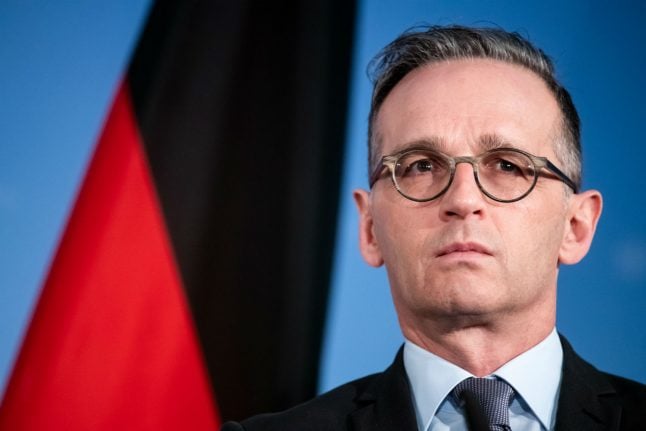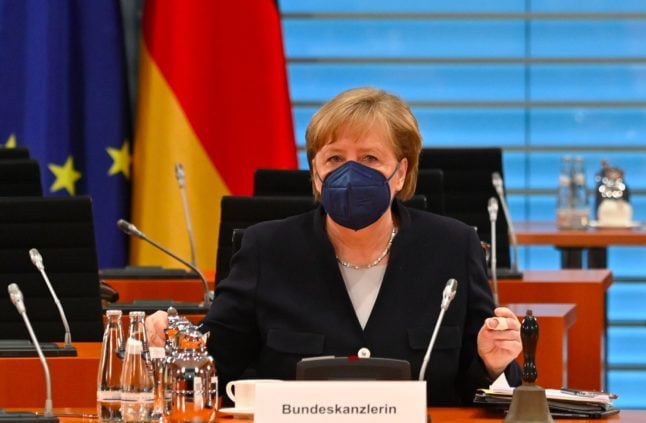US President Donald Trump announced the funding freeze on Tuesday, accusing
the WHO of “severely mismanaging” the spread of the virus.
“Blaming others won't help. The virus knows no borders,” Maas wrote on Twitter.
“One of the best investments is to strengthen the UN, above all the under-financed WHO… in the development and distribution of tests and vaccines.”
Schuldzuweisungen helfen nicht. Das Virus kennt keine Grenzen. Wir müssen gegen #COVID19 eng zusammenarbeiten. Eine der besten Investitionen ist es, die @UN, allen voran die unterfinanzierte @WHO, zu stärken, z.B. bei der Entwicklung und Verteilung von Tests und Impfstoffen. https://t.co/ugVbnZFx7R
— Heiko Maas ?? (@HeikoMaas) April 15, 2020
Merkel spokesman Steffen Seibert, meanwhile, said that the WHO was doing
“unbelievably important work”.
“The government is convinced of the need to support and sufficiently finance the WHO,” he added.
The United States is the biggest contributor to the WHO, making payments of
$400 million last year. Germany is the fourth largest contributor behind China and Japan, according to Statista.
The #WHO has lost its biggest financial contributor as @realDonaldTrump has suspended funding after saying the org failed in its handling of the #COVID19 pandemic. https://t.co/hZKefllATG pic.twitter.com/Kyv5pCdnA6
— Statista (@StatistaCharts) April 15, 2020
Trump accused the Geneva-based body of putting “political correctness above
life-saving measures”.
The move sparked criticism across the world, and Berlin joined the chorus
on Wednesday, with Seibert saying that the pandemic was cause to “uphold our
fundamental belief in the benefits of multilateralism”.
Foreign Minister Maas, meanwhile, stressed the need for countries to “work
together closely against COVID-19″.
Maas has previously taken aim at the Trump administration's reaction to the
virus crisis.
In an interview with Der Spiegel magazine last week, he said the United States had “played down the virus for a very long time”.
“There really isn't any dispute, even in the USA, that many of the measures were taken too late,” he told Spiegel.



 Please whitelist us to continue reading.
Please whitelist us to continue reading.
The utter hypocrisy of Heiko Maas and the Germans in general. Here we have the WHO, led by an inept and perhaps corrupt Tedros Adhanom who downplayed the Chinese virus outbreak while covering for the Chinese. If the WHO had done their job perhaps thousands of lives could have been saved. But what do the Germans and other Trump-hating socialist do but blame the US? The reality is the UN and its various organizations like WHO are bloated, inefficient, and corrupt. They are no more efficient and effective in combating famine, war or pandemic as the EU is at controlling its borders and probably worse. If the Germans don’t like the cut then step up to the plate and pay to make up the difference! Since WW2 the US taxpayer has spent trillions of US dollars in Germany and NATO while the Germans have never paid their fair share as it relates to NATO. The US does not need a lecture from the Germans and fortunately, we have a president who cares even less about what the Europeans think and more about his own citizens, unlike the arrogant pandering incompetnet blowhard Obama.
In an interview with Der Spiegel magazine last week, he said the United States had “played down the virus for a very long time”.
“There really isn’t any dispute, even in the USA, that many of the measures were taken too late,” he told Spiegel. How about the REALITY that Tedros Adhanom downplayed the virus? Oh, you forgot to mention that did ya? Without China’s deceit and WHO’s solicitude for Beijing, the outbreak might have been more limited, and the world at the very least would have had more time to react to the virus. China committed unforgivable sins of commission, affirmatively lying about the outbreak and punishing doctors and disappearing journalists who told the truth, whereas the WHO committed sins of omission—it lacked independence and courage at a moment of great consequence.
In effect, China and the WHO worked together to expose the rest of the world to the virus, at the same time they downplayed its dangers. On Jan. 14, WHO tweeted that “preliminary investigations” by Chinese authorities had found no evidence of human-to-human transmission of the coronavirus. Several days later, it reported “limited” human-to-human transmission, although it downplayed the finding as typical of respiratory illnesses. So, the WHO endorsed China’s narrative during the crucial early days of its cover-up.
Then, the WHO declined to call the outbreak in China a public health emergency of international concern on Jan. 22, at the same time there were confirmed cases in Taiwan, Australia, Japan, Thailand, and South Korea. After the WHO finally declared the emergency, it proceeded to drag its feet on declaring a pandemic, waiting until March 12. As a headline in Reuters put it in early February, “WHO chief says widespread travel bans not needed to beat China virus.” Incredibly enough, in late January, Tedros was praising Chinese officials for “the transparency they have demonstrated.” Ah but let’s see if any of this is discoverable in Der Spiegel? I doubt it!